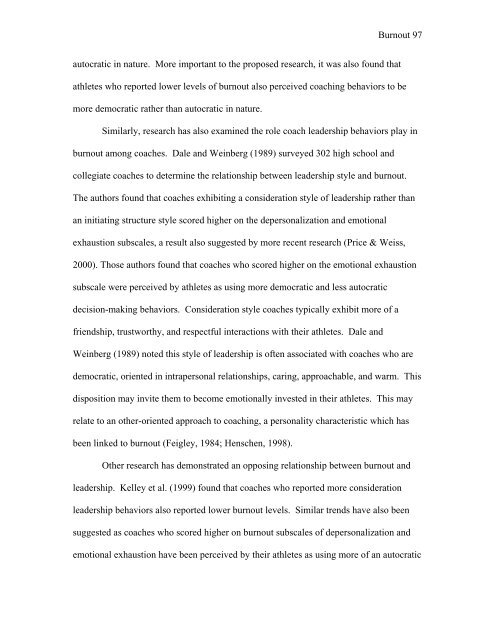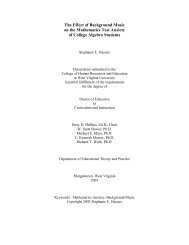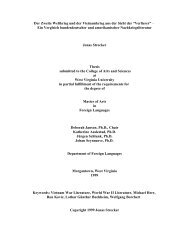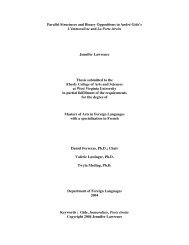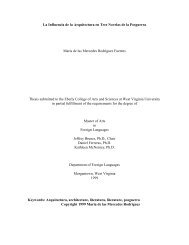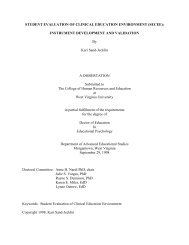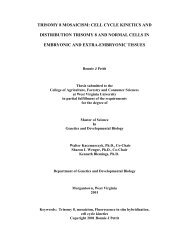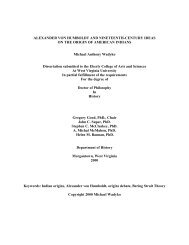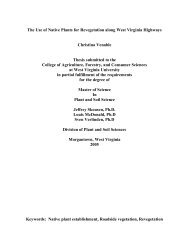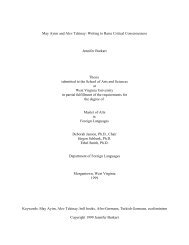Coach and Athlete Burnout - West Virginia University
Coach and Athlete Burnout - West Virginia University
Coach and Athlete Burnout - West Virginia University
Create successful ePaper yourself
Turn your PDF publications into a flip-book with our unique Google optimized e-Paper software.
<strong>Burnout</strong> 97<br />
autocratic in nature. More important to the proposed research, it was also found that<br />
athletes who reported lower levels of burnout also perceived coaching behaviors to be<br />
more democratic rather than autocratic in nature.<br />
Similarly, research has also examined the role coach leadership behaviors play in<br />
burnout among coaches. Dale <strong>and</strong> Weinberg (1989) surveyed 302 high school <strong>and</strong><br />
collegiate coaches to determine the relationship between leadership style <strong>and</strong> burnout.<br />
The authors found that coaches exhibiting a consideration style of leadership rather than<br />
an initiating structure style scored higher on the depersonalization <strong>and</strong> emotional<br />
exhaustion subscales, a result also suggested by more recent research (Price & Weiss,<br />
2000). Those authors found that coaches who scored higher on the emotional exhaustion<br />
subscale were perceived by athletes as using more democratic <strong>and</strong> less autocratic<br />
decision-making behaviors. Consideration style coaches typically exhibit more of a<br />
friendship, trustworthy, <strong>and</strong> respectful interactions with their athletes. Dale <strong>and</strong><br />
Weinberg (1989) noted this style of leadership is often associated with coaches who are<br />
democratic, oriented in intrapersonal relationships, caring, approachable, <strong>and</strong> warm. This<br />
disposition may invite them to become emotionally invested in their athletes. This may<br />
relate to an other-oriented approach to coaching, a personality characteristic which has<br />
been linked to burnout (Feigley, 1984; Henschen, 1998).<br />
Other research has demonstrated an opposing relationship between burnout <strong>and</strong><br />
leadership. Kelley et al. (1999) found that coaches who reported more consideration<br />
leadership behaviors also reported lower burnout levels. Similar trends have also been<br />
suggested as coaches who scored higher on burnout subscales of depersonalization <strong>and</strong><br />
emotional exhaustion have been perceived by their athletes as using more of an autocratic


